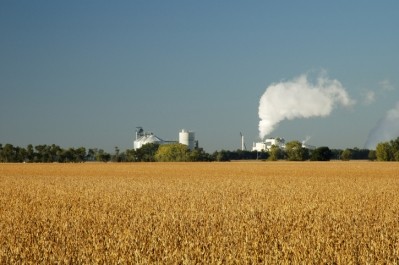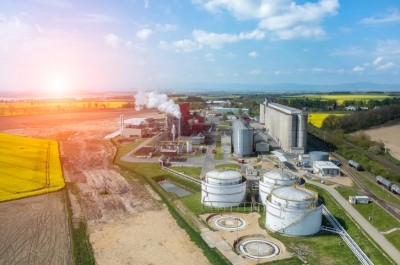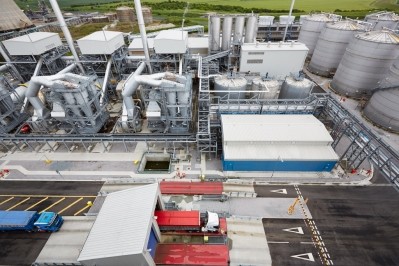Protein coproduct maker, Vivergo Fuels, advances plant closure due to market challenges

The company said it had seen bioethanol prices fall over the past six weeks, significantly lowering its profit margins further.
“We have taken the decision to bring forward and extend our annual plant maintenance work to lessen the impact on the plant’s profitability. Maintenance will commence from the end of November.
“We will closely monitor the market during the maintenance period ahead of any plant re-starting.”
Feed protein source
Vivergo Fuels plant in East Yorkshire is the UK’s largest, and Europe’s second largest producer of bioethanol, a low-carbon renewable transport fuel that is blended with petrol. The facility can produce up to 420 million liters of bioethanol. The fuel is made from 1.1m tons of feed wheat, sourced from nearly 900 farms across the East Yorkshire region. Vivergo says it generates as coproduct 500,000 tons of high protein feed to over 800 farms across the UK.
The firm said it reluctantly welcomed the UK government’s Renewable Transport Fuel obligation proposals in September this year, but that it had remained extremely concerned that there was no rollout framework for E10 fuel in the UK, the absence of which may have serious consequences for the long-term future of the UK bioethanol industry.
Richard Royal, head of government affairs at Vivergo Fuels, told this publication earlier this year that his priority was securing UK government and public backing on a nationwide introduction of E10 fuel.
E10 is a renewable transport fuel consisting of unleaded petrol blended with 10% bioethanol - roughly double the amount contained currently in the petrol motorists currently buy from UK pumps.
A number of countries across Europe, North America and Australasia had already introduced E10 or higher blends of bioethanol into their unleaded petrol, he said, but the UK had “lagged behind” and was “failing to meet its domestic and international commitments in this area”.
“In the event of E10 fuel being introduced in the UK, there is the potential to increase the market for domestic bioethanol. This inevitably increases the co-production of animal feed, and, of course the demand for feed wheat. As such, the introduction of E10 fuel would not only bring huge benefits to the environment by lowering transport emissions but also to British farmers by increasing domestic supply and demand and lessening their reliance on international trade at a time when it is becoming increasingly uncertain,” said Royal.











